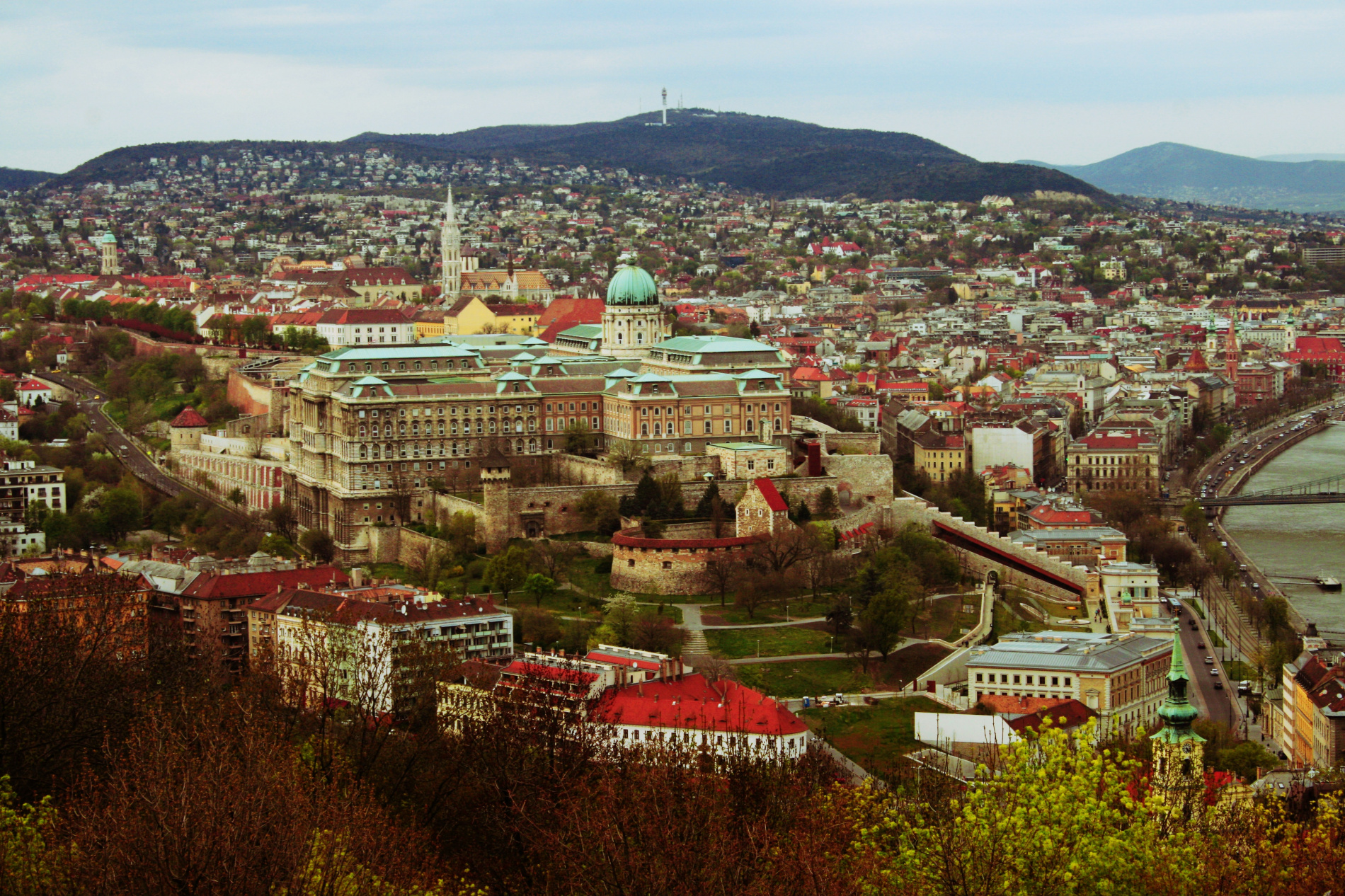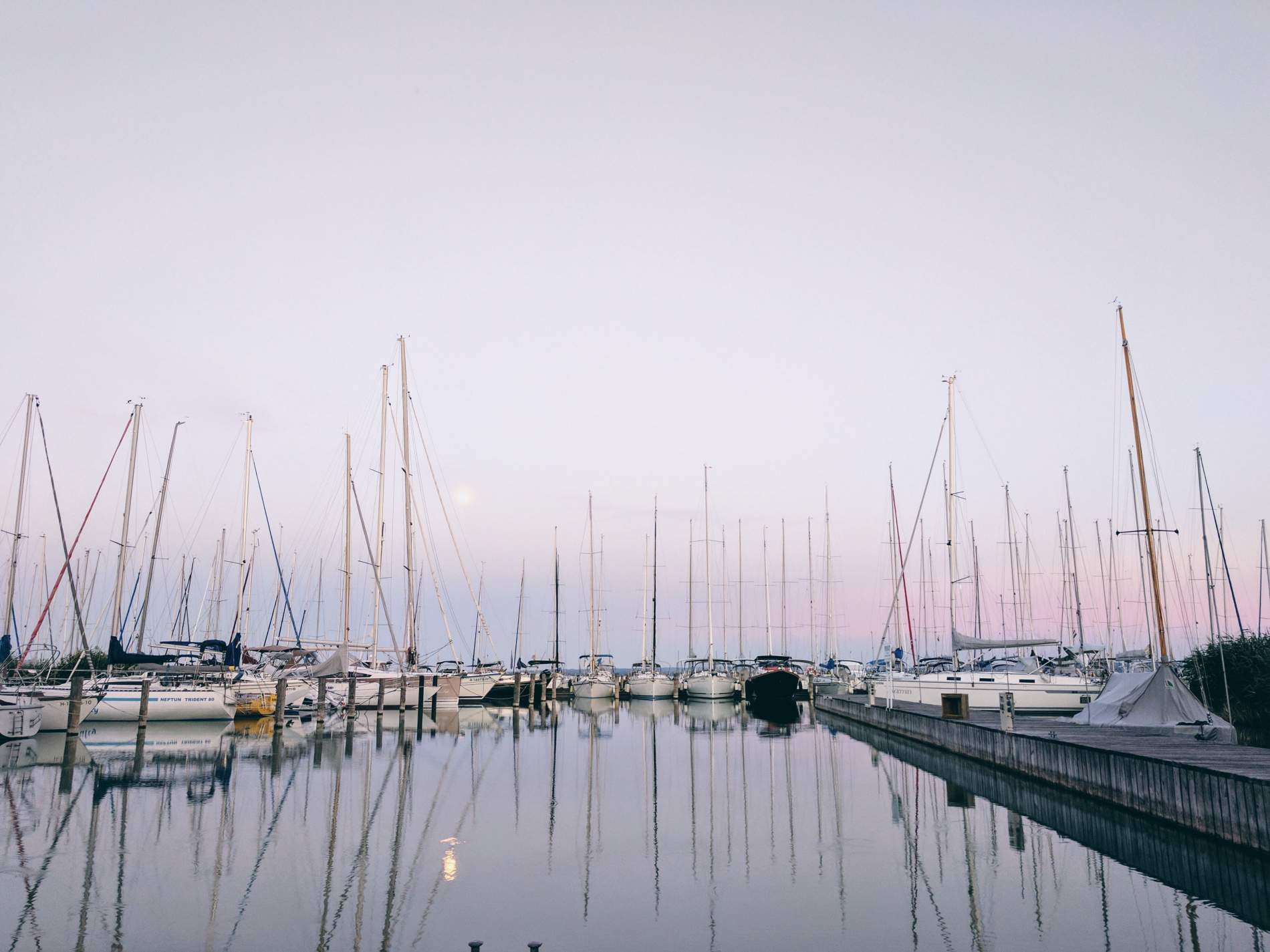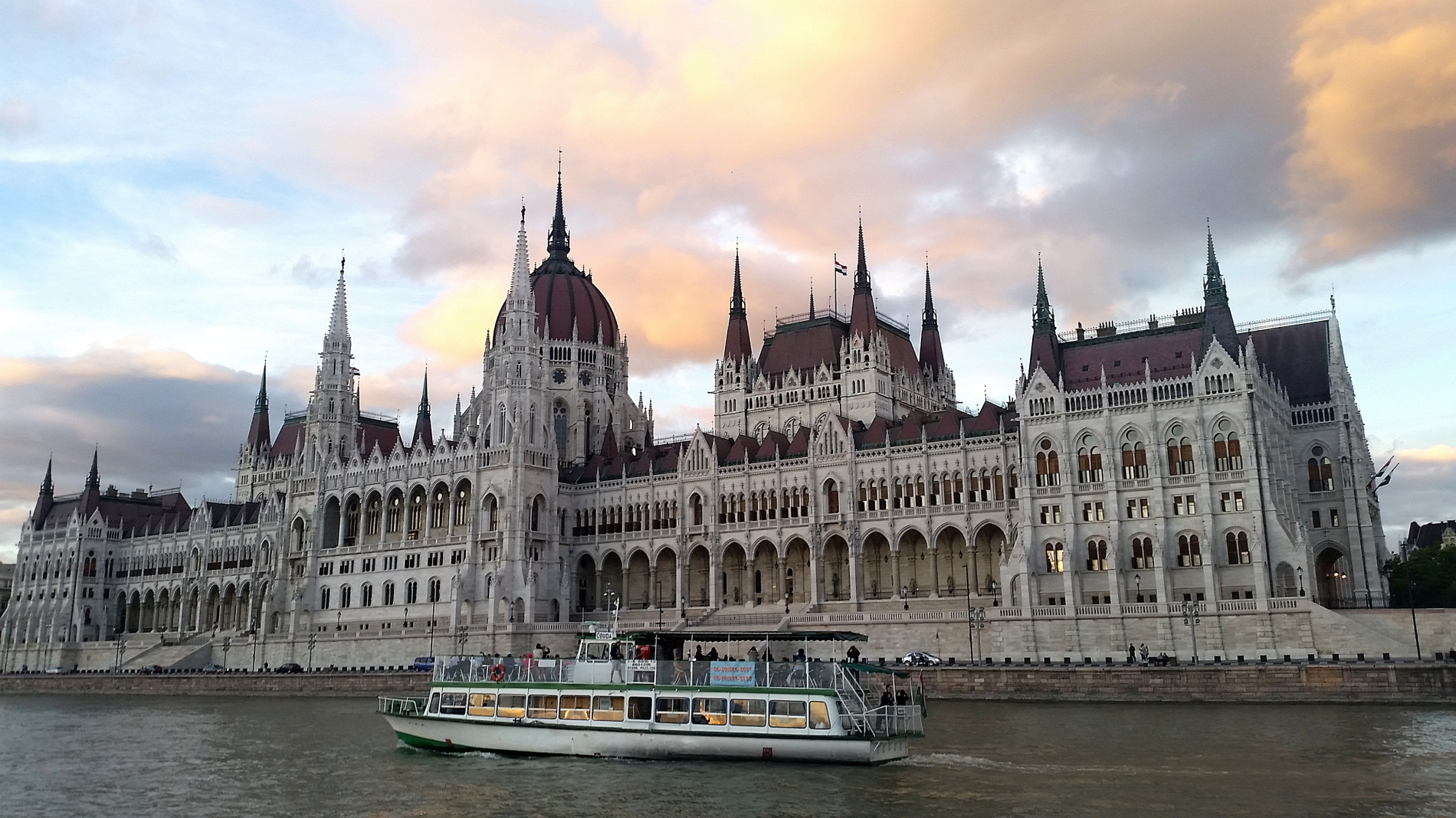Hungary's location in the centre of Europe, along with its hospitable attitude, makes it one of the best places from which to embark on an Eastern European journey. It is both European and distinctly Hungarian, incorporating a mixture of historical and present-day pleasures. The country proudly upholds its traditions, culture and arts, but is attentive to what is new and fashionable in the outside world.
A small landlocked country sharing its borders with seven neighbouring countries, travellers to Hungary should note that it was originally inhabited by the Magyars, an equestrian nomadic tribe. They were eventually converted to Christianity and in the year 1000 their Prince Stephen was crowned the nation's first ruler. Since then Hungary has seen numerous dynastic changes, from Turkish occupation to the era of Communism, and today quaint little towns, cities and ruins in the countryside bear the marks of this turbulent history with a rich mosaic of architectural styles and fortified hilltop castles. The Hungarian people, neither Slavic nor Germanic, are formal, reserved and intensely proud of their ancient nation and its cosmopolitan capital, Budapest.
Most visitors choose to arrive in Budapest which is situated on a lovely stretch of the Danube, a river that gives the city some of its romance and beauty. It is a city of culture and of astounding beauty and grace, and visitors are enchanted by it. Outside of the capital the plains, rolling hills and rivers, lakes and vineyards hold much to amuse the visitor. The Baroque town of Eger, with its fine wines, attracts many, and there are a surfeit of charming and historic riverside villages along the Danube Bend, not to mention commanding fortresses, castles and palaces. The resort-lined Lake Balaton and the thermal spas and volcanically heated lake at Hévíz are just some of the country's many highlights awaiting discovery.

Hungary is one of Europe's most fascinating countries and offers a wealth of sightseeing and attractions to meet just about every tourist's needs. Explore Budapest, one of the world's most beautiful cities, and marvel at the architecture, enjoy the renowned operatic and music events, and experience the romance of the Danube River and Budapest's famed spa baths. Budapest has many attractions and is a great base from which to explore the country. Visit Hévíz and soak in the world's second largest thermal lake, Gyógytó; visit Momento Park, one of the world's most bizarre attractions, where hundreds of giant figures were banished at the end of the Communist era. Take a trip to Szentendre for a spot of shopping, and visit the old university town of Keszthely to enjoy the quaint streets lined with trees, trendy cafés and busy markets. The best season to visit Hungary is in the summer, between April and September, when the days are long and the weather warm. Most towns and cities in Hungary have reliable and affordable public transport but the best way to see the country is to hire a car and experience it all for yourself as it is not difficult to drive and navigate in the country.
Budapest
Budapest's rich and diverse history makes for some exciting sightseeing opportunities and visitors will enjoy exploring this magnificent city and find locals very hospitable. From monuments to museums and palaces, Budapest has a wide variety of sights to keep any tourist busy. The attractions in Budapest range from the luxuries of spa treatments courtesy of the city's many thermal springs, to fascinating historical sightseeing, to foodie adventures sampling the traditional cuisine, to river cruises down the beautiful Danube. Stroll through Memento Park, one of the city's strangest attractions, which features giant statues that once lined the city's streets during the Communist era, or marvel at the Royal Palace, which dates back to the 13th Century. Visit the Parliament Buildings along the banks of the Danube River and walk along the Chain Bride, Budapest's first bridge over the Danube. Admire the stunning views from the vantage point of Fisherman's Bastion or from Gellert Hill where you can also visit the Citadella and Liberation Monument.

The Danube Bend
The Danube Bend is an extremely scenic area with green valleys and hills rising up from the river, picturesque little towns with market squares and commanding fortresses with sweeping views. Many visitors choose to do a boat cruise on the Danube from Budapest stopping at the little towns along the way. Because of its close proximity to the capital, many people on a holiday in Hungary choose to use Budapest as their base and take day trips into the Danube Bend. Combined with good facilities and easy accessibility, it is one of the more popular destinations in Hungary.
Lake Balaton
Lake Balaton is one of the most popular holiday destinations in Hungary and the largest freshwater lake in Europe. The south banks are full of modern beach resorts for those who desire nothing more than fun in the sun and a rollicking nightlife. The northern banks still boast some picturesque old villages and historical sites as well as some great local wines; although the lake is less sandy in the north the scenery is arguably more beautiful. Attractions on Lake Balaton are therefore plentiful and various and the area caters for all kinds of tourists.
Eger
One of Hungary's oldest cities, Eger is a charming destination full of treasures for the historical sightseer, relaxing spa treatments and mineral baths for the pleasure-seeker, and full-bodied red wine for the gourmet. There are plenty of things to see and do in Eger, which has been inhabited since the Stone Age. Apart from the many tourist attractions in Eger visitors will find all the facilities and amenities to be expected of northern Hungary's second largest city: getting around, finding accommodation, booking tours and taking excursions out into the surrounding countryside is easy.

General weather conditions: Hungary has a continental climate with distinct seasons, and a great variation between winter and summer conditions. During winter the weather is bitterly cold with snow blanketing the ground for weeks and the mighty Danube River freezes over. The weather in this part of Hungary is hot and humid throughout the summer months, which are the most popular time to visit. Eastern and central Hungary are flat and here the summers are hot and dry and the winters cold and wet; the wind is often strong on the plains and adds to the chill factor. In the south of Hungary there is a slightly warmer climate and the summers are long and hot while the winters are shorter and less severe, with temperatures that seldom drop below freezing. In the south the rainy season is summer.
Best time to visit: Most people would say that the best time to visit Hungary is over the summer period, when the weather is warmer and the attractions are all open. The weather in spring and autumn can be very pleasant too, but temperatures do drop to around 20°F (9°C). Over winter temperatures approach freezing.
Rainy season: Some rain can be expected throughout the year and rainfall is largely dependent on region as there are variations in weather in Hungary according to location. The west of Hungary, including Budapest, starts warming up after a cold winter in April, which is spring time - although this is also a rainy period.
The borderless region known as the Schengen Area includes the following countries: Austria, Belgium, Czech Republic, Denmark, Estonia, Finland, France, Germany, Greece, Hungary, Iceland, Italy, Latvia, Lithuania, Luxembourg, Malta, The Netherlands, Norway, Poland, Portugal, Slovakia, Slovenia, Spain, Sweden and Switzerland. All these countries issue a standard Schengen visa that has a multiple entry option, and which allows the holder to travel freely within the borders of all the aforementioned countries. All visitors to Hungary, other than EEA members, should ensure that their passports are valid for at least six months beyond the expiry date of their visa. Foreign passengers must be in possession of a return/onward ticket (or sufficient funds to buy one), and the necessary travel documentation for their next destination. Additionally, visitors must hold the equivalent of HUF 1,000 per day of stay, in hard currency, although the following documents are also accepted: a major credit card, a letter of invitation, proof of accommodation (reserved and paid for), or a document authorising the visitor to withdraw cash from a bank in Hungary. NOTE: It is highly recommended that your passport has at least six months validity remaining after your intended date of departure from your travel destination. Immigration officials often apply different rules to those stated by travel agents and official sources.

Electricity
Electrical current is 230 volts, 50Hz. European-style two-pin plugs are standard.
Language
Hungarian (Magyar) is the official language, but German is widely spoken, especially in the areas close to the Austrian border. English is spoken in tourist areas and most hotels.
Money
Although Hungary is part of the EU it does not use the Euro; the official currency is the Hungarian Forint (HUF). Most international credit cards are accepted, and these can be used to withdraw cash from banks and ATMs, and to pay bills in hotels, restaurants and most shops. Banks usually open between 8am and 4pm on weekdays and some are open on Saturdays. ATMs and currency exchange machines are available in towns and cities throughout the country. It is advisable to retain exchange receipts for proof of legal currency exchange.
Emergencies
Emergencies: 112
Safety
Most visits to Hungary are trouble-free, but normal precautions against petty crime should be taken. Pick pocketing and bag snatching is a risk on crowded public transport and other places frequented by tourists. Minimise your chance of being targetted by making use of hotel safes to store valuables and not displaying conspicuous wealth. It is also always a good idea to carry copies of important documents like your passport. Some bars, clubs and restaurants in Budapest charge outrageous prices by means of scams that target foreigners in particular. Be cautious of invitations off the street to dine in certain establishments or of recommendations by taxi drivers who are often in on the scam. Some taxi drivers can also overcharge or take passengers on a circuitous route. Any political demonstrations should be avoided, as they have led to violence in the past.
Customs
Hungarians are generally open and friendly people who will readily strike up conversation. Men and women greet each other by shaking hands and close friends kiss each other lightly on each cheek. Older men may bow to women and kiss them on the hand.
Tipping
Taxi drivers and waiters expect a tip of 10 to 15 percent in Hungary. Waiters should be handed the cash, rather than have it left on the table. Most people in the service industry expect to be tipped about 10 to 15 percent.
Duty Free
Travellers to Hungary with goods purchased in the EU for personal use do not have to pay customs duty on 3200 cigarettes, or 400 cigarillos, or 200 cigars, or 3kg of smoking tobacco; 10 litres of spirits; 110 litres of beer; 20 litres of fortified wine, such as sherry or port; and 90 litres of wine. Travellers arriving from non-EU countries do not have to pay customs duty on 200 cigarettes, or 100 cigarillos, or 50 cigars, or 250g of smoking tobacco, or a proportional mix of these. Alcohol allowances (for passengers over 17 years) include 1 litre of spirits and 2 litres of wine; perfume up to 50g and 250ml eau de toilette; and other goods for personal consumption to the value of €175 per adult or €90 for children under 15 years. Prohibited items include fresh meat and dairy products.
Communications
The international access code for Hungary is +36. There are often high surcharges on calls made from hotels; it is cheaper to use public telephone boxes or calling cards. Local directory assistance is available by dialling 198, and international directory assistance is 199; callers may have to hold for a few moments, but English-speaking operators are available. The local mobile phone operators use GSM networks and have roaming agreements with most international operators. Internet cafes are available in larger towns.